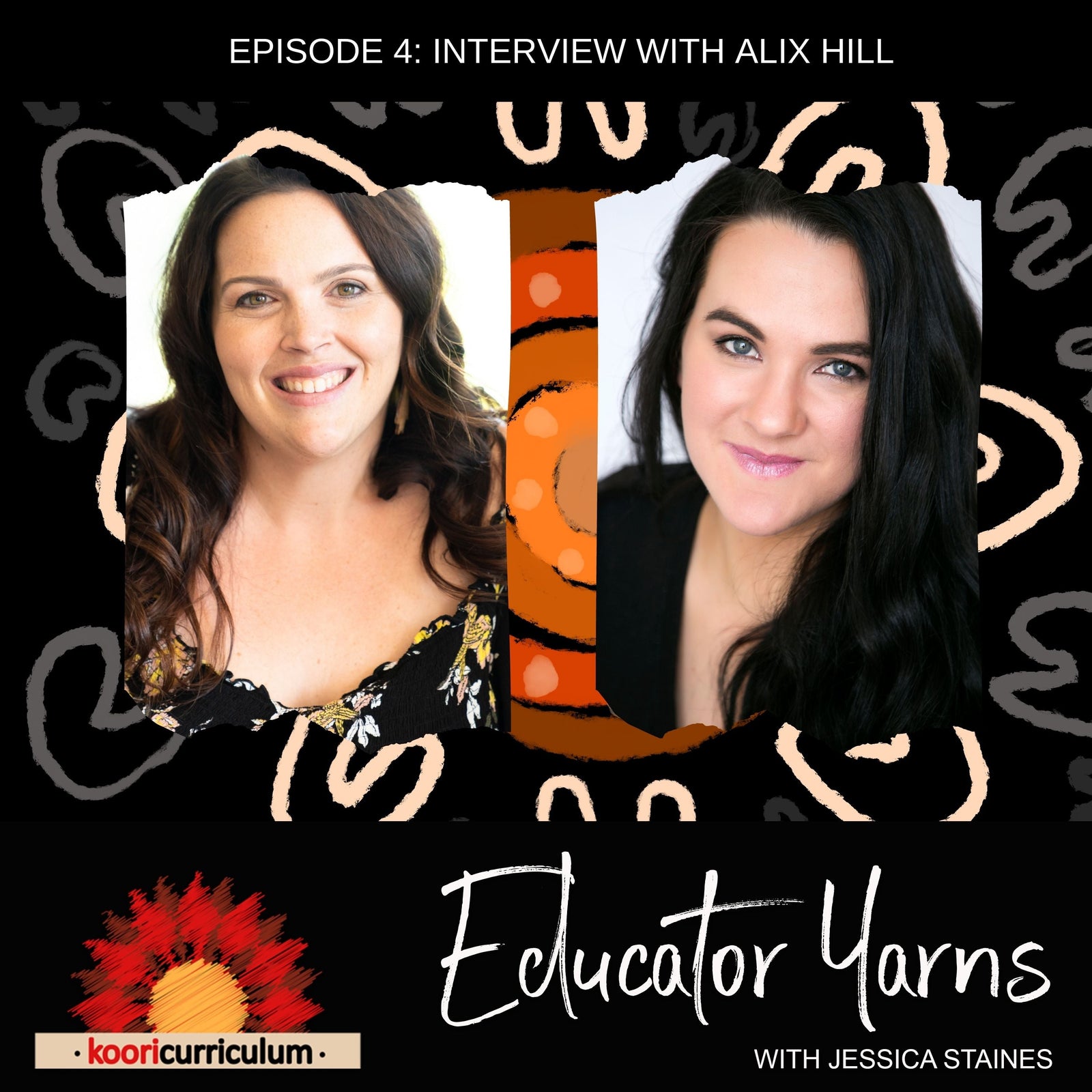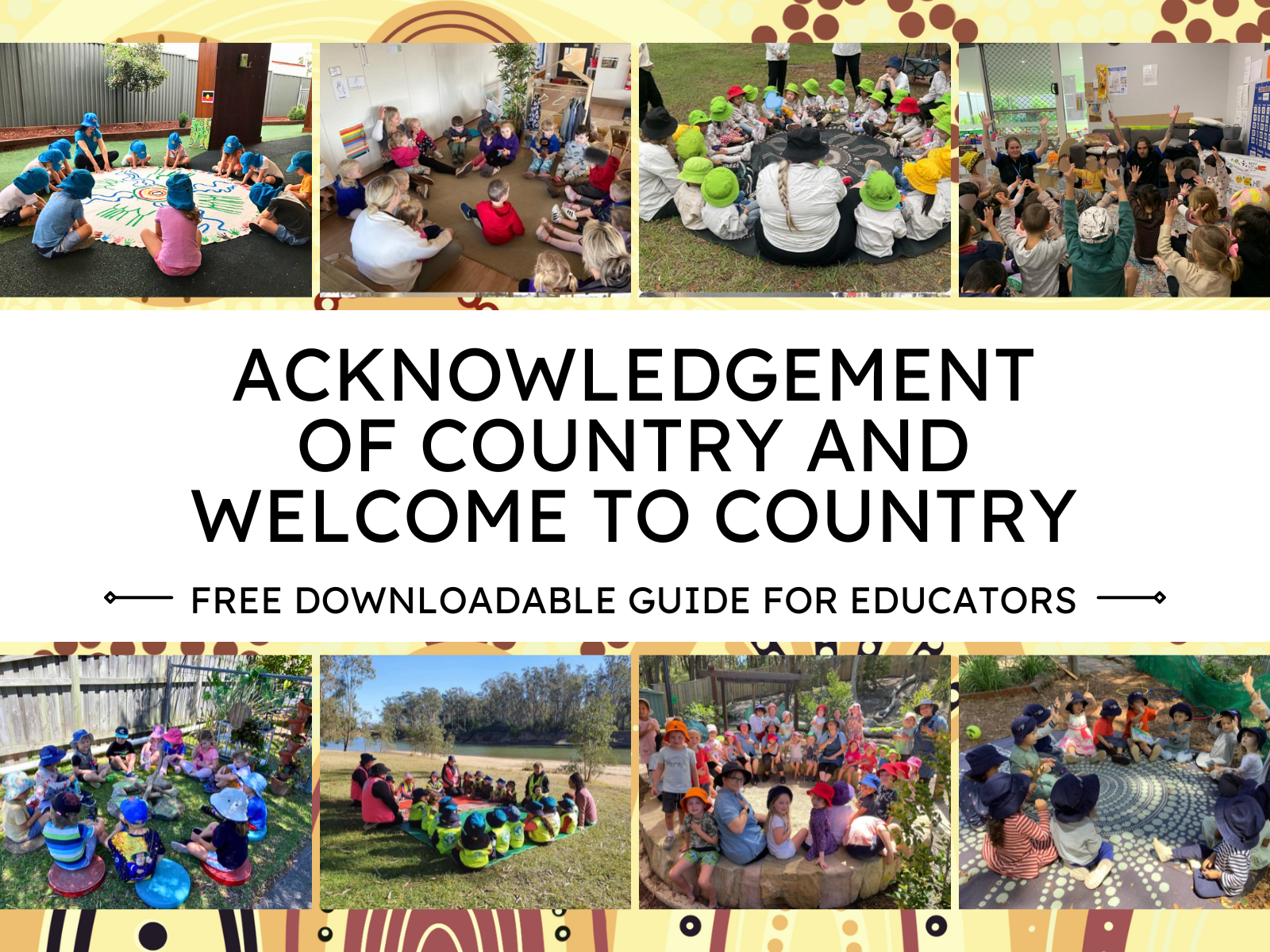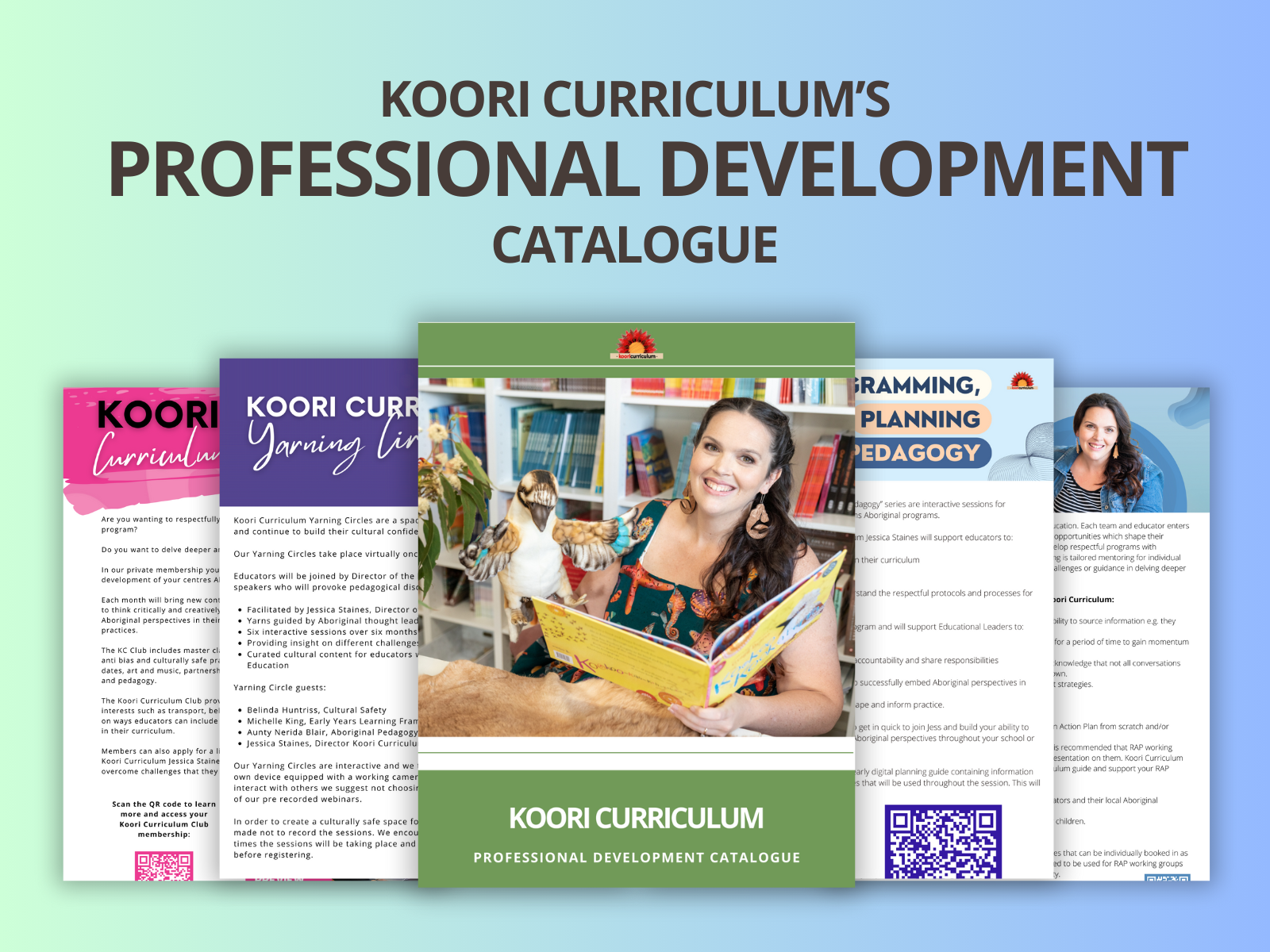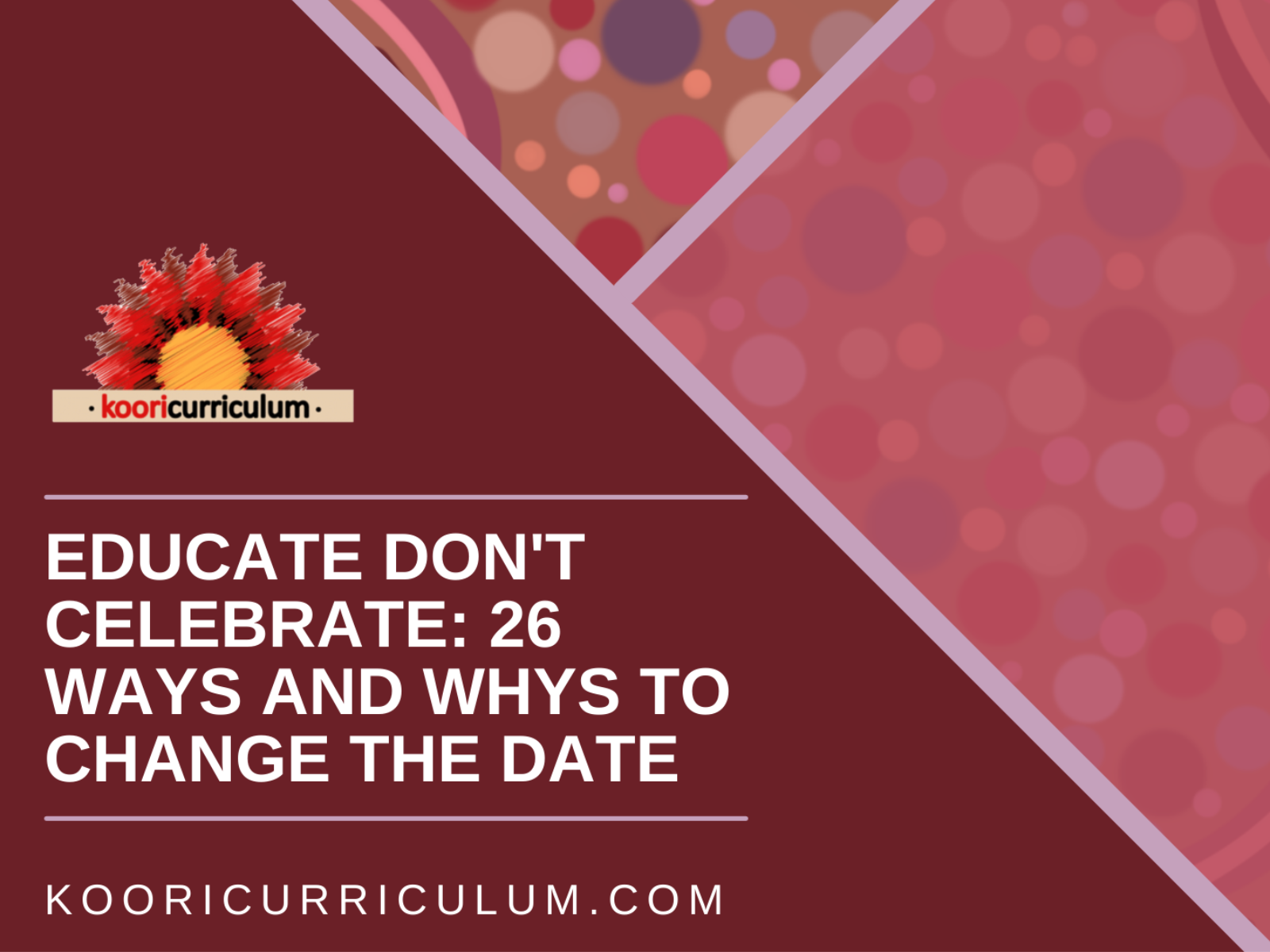
Educator Yarns Season 2 Episode 4: Interview with Alix Hill
Today on Educator Yarns Jessica speaks with Alix Hill, early childhood educator on Wurundjeri Land in Sunbury Victoria.
Alix reflects on the navigation of inbuilt fears, common misunderstandings and an eventual realisation of obligation which lead to the creation of her teams Reconciliation Action Plan. This began a journey of a deeper more truthful embedding of Aboriginal Perspectives into their service.
From their first moment during their Certificate 3 through to the engagement of staff and community, Alix reflects on the navigation of inbuilt fears, common misunderstandings and an eventual realisation of obligation, they and the staff went through as they created their Reconciliation Action Plan, and began the journey of a deeper more truthful embedding of Aboriginal Perspectives into their service.
Show Notes
Jessica Staines:
Why is it that we do know more about ancient Egyptians and the French revolution than what we do about our own country's black history?
Alix Hill:
That's right. When you know, better, you do better. I can only hope that what we're teaching these children is going to help them to then go on and teach the next generation. I had a lot of educators that were like, "Are we allowed to do that?" They really just needed someone to say, "Hey, this is okay. We're not only allowed to do this, we need to do this."
Speaker 3:
You're listening to The Koori Curriculum, Educator Yarns, with Jessica Staines.
Jessica Staines:
I'd like to acknowledge the dark young people, the traditional owners of the land on which I'm recording this podcast. I pay my respects today [inaudible 00:00:47] both past, present, and emerging, and pay my respects to all Aboriginal and Torres Strait Islander listeners. Hey everyone. My name is Jessica Staines, Director of the Korri Curriculum. For those of you that aren't familiar with our podcast, season two is all about our new book, Educator Yarns. We're meeting and interviewing with our educator contributors from right around Australia, who will be sharing little snippets of their piece. It will be a combination of stories about why embedding Aboriginal perspectives is so important, how to connect with local community, how to embed our Aboriginal perspectives in our programme, how to work with anti-biassed approaches and so much more. So make sure you listen in and enjoy the episode. Bye for now.
In this episode of Educator Yarns, we meet with Alex Hill, an educator who is sharing her, Uh-huh (affirmative) moment, that led her to a process of unlearning and relearn the truth of Australia's black history. Alex also shares both her personal and professional journey, and the tools that she used to bring about cultural change in her service. Well, thanks for jumping on and yarning with me.
Alix Hill:
[inaudible 00:02:02] Thanks for having me.
Jessica Staines:
Our chat is pretty informal, but I just essentially wanted to touch base with you and give you a chance to have a Yarn about your article for our listeners on Educators Yarns in the lead up to the release of the book. I just thought if you're okay, just to introduce yourself, like where your from.
Alix Hill:
Sure. So I'm Alex Hill. I live on Wurundjeri Land in Sunbury. I've worked in Early Childhood Education and Care for nearly six years. I'm working with most recently, with Complete Kids in Sunbury. I'm just very passionate about Early Childhood Education and respecting the rights of the child and the children's voice.
Jessica Staines:
I guess your piece that you wrote for Educator Yarns was really about your personal and professional journey, and your why, Embedding Aboriginal perspectives, was so important. I guess what really struck me about your piece was it's relatable I think to many educators, that often it's not until something is put in front of them, whether it's professional development training or in your case, it was when you did the Aboriginal unit at TAFE, that all of a sudden you realise perhaps how little we know about Aboriginal culture and history.
Alix Hill:
Yes. Very much so.
Jessica Staines:
What was that moment like for you when you began to realise?
Alix Hill:
I think it was really just shock. I always thought I was quite clever and quite well educated, and then to realise there was this whole other part of the history of my country, where I live, that I had no idea about. I didn't know so much and I'd keep hearing things and think, how do I not know that? How is that not important to teach in primary schools? Why did I learn about the French revolution, but I never learnt about Australian Aboriginal History. It blew my mind and I thought that's not good enough.
Jessica Staines:
I think a lot of educators feel really angry that it's almost they were... that they've missed out all that, their life would have taken a different trajectory and path. That why is it that we do know more about ancient Egyptians and the French revolution, than what we do about our own country's black history.
Alix Hill:
That's right.
Jessica Staines:
I think to our teachers, it probably wasn't part of their study, and it probably wasn't part of their education. I think a big part of your why, and I share in that, is that this is about education and stopping that cycle, so that this next generation of children don't come through knowing as little as what we did.
Alix Hill:
That's right. When you know, better, you do better, and I can only hope that what we're teaching these children is going to help them to then go on and teach the next generation even more.
Jessica Staines:
Mm-hmm (affirmative). So that... your thought there essentially was that catalyst for change for you, but the rest of your team hadn't really had that level of exposure or experience yet. I think this is something that is also very common amongst early learning teams, is that there's a spectrum of cultural capacity, and knowledge, and understanding that some members of the team might be in the know, and they've had that experience and exposure, whereas others are still not aware of the country's history. Was that the case with your team?
Alix Hill:
It was. I think a lot of what I found though, was a real fear of offending. I had a lot of educators that were like, "Oh, are we allowed to do that?" They really just needed someone to say, "Hey, this is okay. We're not only allowed to do this, we need to do this," and then just how easy it is in a way to begin how? Like, when you came to my Centre, I needed a professional development, you said about every experience should have an Aboriginal perspective. I think that comment opened the eyes of my team, because then when we would start setting up new experiences, they were saying, "What can we add to this area?" It wasn't this big, scary thing of, "Oh, we've got to incorporate Aboriginal perspectives in the whole room, that's a lot of work."
It was, this thing I'm working on right now, how can I incorporate Aboriginal and Torres Strait Islander perspectives into this and make it meaningful. I think that really helped them realise, I can do this. I don't need permission to do this. I don't need to be scared to do this. I can do this myself. I can teach these children and continue to go from there.
Jessica Staines:
Mm-hmm (affirmative). I should also say to educators, look, you need to give yourself the kindness and the courtesy of starting, and reflecting, and tweaking your pedagogy in practise. You need to start to then know what works and what doesn't work. I think my practise has changed immensely in the 15 years that I've been teaching in early childhood. It's been through critical reflection and exposure to various experiences and other educators to say the multitude of ways that, Aboriginal perspectives can be celebrated in Early Childhood Curriculums. But I think that fear of getting it wrong it is everywhere, and it is because educators are so very respectful that they, the thought of them possibly doing the wrong thing is really hard for them. But I know that you also signed your team up with a reconciliation action plan to help guide them through that process. Do you want to talk a little bit about that?
Alix Hill:
Yeah. Well, I went along to a network area meeting, which was attended by our area's Chairperson for VI, Corky. Even that I learnt so much just being there in a room with other non-indigenous educators and directors, that they were asking questions I never would've even thought to ask at that point. I was learning from what was being presented, but I was also learning from the questions of the other people in the room. I heard them talking about rap groups, and I'm thinking Biggie, Tupac, what are we... we're going to go have a rap battle in the [inaudible 00:08:23] or something. They explained it a bit more and how important it was. So when I got back to the Centre, I got on Abroginal [inaudible 00:08:30] and had a look and I thought, this is amazing.
I looked at my town and at that point, my town only had, I think it was two centres had submitted... had put in that they were going to begin working on the Rap, and there was nothing in my area that had completed rap. I thought, what a great start for us, that this isn't just me extending my knowledge, I can get the whole team on board. I spoke to our director and we looked through it, and by the end of the day, in our notebooks, we were booking in staff meetings to set up a Rap reconciliation action plan meeting group to work on that. From there, we identified the goals. One of the things we did was get you in for the professional development, and I think once we did that, it wasn't just me and the director, it wasn't just me, the director, and the people in our working group, it was the whole Centre going, "Hey, this is our goal. Let's work together."
Jessica Staines:
Yes. I think that's something that I can't emphasise it enough, that it is so important that at some point in time, you organise team training for the whole service, because even though there might be professional development opportunities, you've got one educator going off and doing a workshop somewhere, and another one doing a webinar, and another one do a writing, you need to have a unified approach, and talk about your philosophy in your team's context, and lay that foundation that everybody is on the same page, and that you haven't got some members of the team charging on ahead and continuing to develop their cultural confidence and capacity, where other educators are too nervous to start dipping their toes in. I think the other thing you said about networking is also really important, because quite often its directors or educational leaders that get opportunities to attend network meetings.
I really think that there's a lot to be said and heard for all educators to be networking and liaising with other professionals in their community, because often we operate in solos and often there's other teams that are just a sub... a block away, or a suburb away, that have exactly the same challenges or have had the same experiences, and they've developed relationships or strategies that you can support and work with one another. Was that the case with your network meeting?
Alix Hill:
Very much so for myself. I think when we look at the child, we look at the holistic view of the child, so we take the opinions and the observations of every educator to get the view of the child. But we're not doing that when it comes to professional development, or not naturally doing that. I think having the opportunity to send at that point, I was a room leader to some of the room leader to our network area meeting. Most of the other people there were directors and educational leaders, but I got so much from that. I was able to come back and contribute that. So then if another room leader, another assistant, another... anybody else in that centre, goes along to another network area maybe, they're going to learn different things, and they're going to bring that back.
Again, it's a collaborative, holistic view, holistic approach that we're putting into ourselves, and our learning, and our professional development. I think like you said, it comes back to that critical reflection as well. Reflecting how is learning in the past, and then reflecting how we can learn better in future.
Jessica Staines:
How many educators do you have in your team?
Alix Hill:
My personal team, we have six, but across, we've got the two services, and across the two services, I think they're nearly at 200.
Jessica Staines:
Educators?
Alix Hill:
Yes. We've got the OSHC services as well.
Jessica Staines:
Yeah. I think that's... so two services, plus an OSHC, cultural change in a service, that size takes time, to work on every educator's cultural capacity, and to meet them where they are at, and involve them in the process, instead of just a couple of people working on the Raps. Everybody's owning it, everybody's understanding it, and everybody's valuing what you're doing. Sometimes I think at the other end of the spectrum, you've got family daycare educators, who there's only one person in their team, and they've got so much to do, that can be really challenging and isolating for them, but every team has its own unique challenges. I think the size of your team is strength, but it's also a challenge for you guys to make sure that everyone is getting access to these opportunities and developing their understanding. So what are some strategies that you've put in place to do that?
Alix Hill:
I think one of the big ones. When we started the reconciliation action plan working group, we took educators from one centre. We were answering the questions at the beginning to gauge our cultural confidence. The questions that were coming up, I was sitting there saying, "Oh, we're doing that in my room." But we're supposed to be looking at service as a whole. We couldn't answer that question for the other rooms, for the other centres, for the OSHC services. I think it's still a work in progress there. Once we looked at what our goals were, we thought, how can we get this across to the other services? When we booked the professional development session, that was for everybody. Everybody was strongly invited to come.
I think in your very first session where you broke our hearts just when you were talking about the history. I looked around the room, and just seeing the books on their faces, of all the other educators, people that I've... a lot of them I hadn't even met personally, and I thought, okay, this is getting through. We had to have that moment to be able to make changes, and whether those people go back to their services and make the same changes that were happening in my room, or whether they go back and take it their own way. Any beginning is a good beginning I think.
Jessica Staines:
Mm-hmm (affirmative) I mean, I know that particularly when we do our embedding workshops, we do part one and we do part two. Part one really is looking at history, and unpacking why this is important and delving into that, I guess. I know it can be really confronting and overwhelming for many educators, but for a while I used to think, I wonder if I should still be doing this and doing it in that way, I guess, because I can say how much it upsets people, but I spoke to some people in my family and where I've ended up with it anyway, is that I really believe that this work has to hurt you. You have to hurt, and you have to feel upset, and you have to feel angry when you realise the statistics of what our children today are experiencing [crosstalk 00:15:07] high school.
Alix Hill:
Especially when we're not learning that in primary school, and in high school. I think we should then have as adults to be able to have the opportunity to learn that. I think you have to break out hard. It's like you said, we have to get to that point to think of how much bad has happened, to then think, how can we make good of this, how can we move forward and be good?
Jessica Staines:
Yeah. It can be a shock for a lot of educators that haven't had those experiences, or they haven't spoken to an Aboriginal person before. It can really shock them and it can be upsetting. But I think for me, that hurt ensures that Aboriginal perspectives is privileged at the forefront of educators practise, and it's not just something that's fashionable for a month [inaudible 00:15:52] and fades off a little bit. I apologise for upsetting people, but [inaudible 00:16:00] [inaudible 00:16:01]
Alix Hill:
No apology necessary.
Jessica Staines:
Well, thanks so much, Alex, for jumping on and chatting with everyone on Educator Yarns, and for everyone that's listening, if they want to find out more about Alex and her journey, you can jump onto the Koori Curriculum website, and you can subscribe to our newsletter where you'll receive updates of the Educator Yarns book, which is due to launch a little later this year. Thanks Alex for coming on.
Alix Hill:
No problems. Thank you for having me.
Jessica Staines:
I hope that you enjoyed this episode and had a great little sneak peak between the pages of our new book, Educator Yarns. If you'd like to ask questions, or connect with me, best to join our Facebook group, the Koori Curriculum Educator Community, which is free for all of our listeners and members. Coming up next on Educator Yarns, I meet with Casey J Goodman, an Educator in Victoria, who will be sharing a personal experience that shaped and changed her pedagogy and practise as an Early Childhood Educator.



